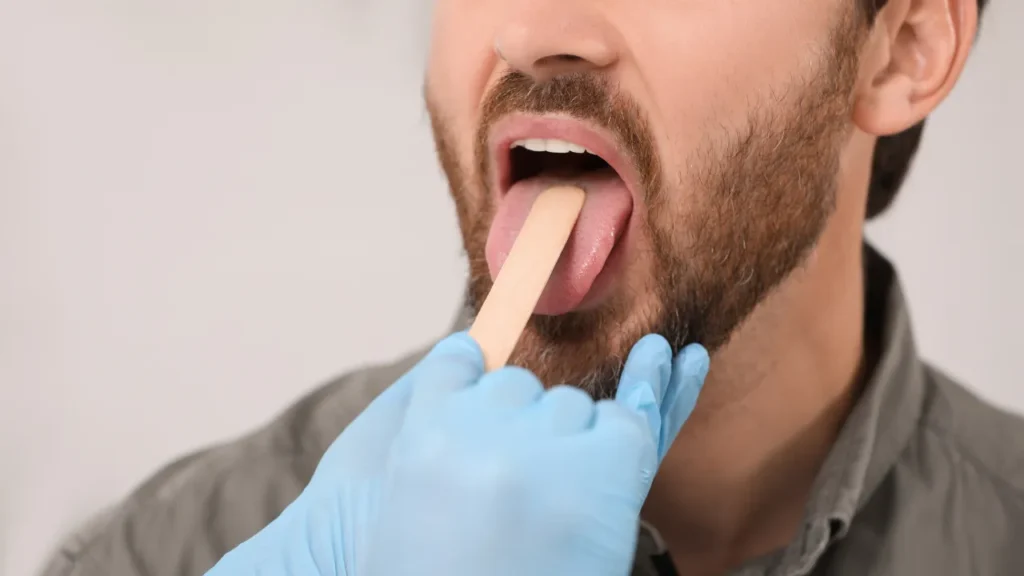Oral infections are a common issue that can affect anyone, regardless of age or dental history. These infections can range from mild to severe, and if left untreated, they can lead to serious health complications.
Addressing oral infections promptly is crucial to maintaining overall oral health and preventing further damage.
Common Types of Oral Infections
- Gingivitis: Gingivitis is the mildest form of gum disease and is caused by the accumulation of plaque on the teeth. Symptoms include red, swollen gums that bleed easily. Gingivitis can often be reversed with good oral hygiene and regular dental cleanings.
- Periodontitis: If gingivitis is left untreated, it can progress to periodontitis, a more severe gum disease that affects the bone supporting the teeth. Symptoms include receding gums, loose teeth, and persistent bad breath. Treatment typically involves deep cleaning (scaling and root planing), and in advanced cases, surgery may be necessary.
- Oral Thrush: Oral thrush is a fungal infection caused by the Candida fungus. It often appears as white patches on the tongue or inner cheeks and can cause discomfort or pain. Oral thrush is more common in individuals with weakened immune systems, the elderly, and those using dentures. Treatment includes antifungal medications and maintaining good oral hygiene.
- Herpes Simplex Virus (Cold Sores): Cold sores are caused by the herpes simplex virus and appear as painful blisters around the lips or inside the mouth. While there is no cure for the herpes virus, antiviral medications can help manage outbreaks and reduce symptoms.
- Tooth Abscess: A tooth abscess is a pocket of pus caused by a bacterial infection. Symptoms include severe toothache, sensitivity to hot and cold, fever, and swelling in the face or jaw. This condition is a dental emergency and requires prompt treatment, which may include draining the abscess, antibiotics, or a root canal.
Symptoms of Oral Infections
Oral infections can present a variety of symptoms, including:
- Persistent pain or discomfort in the mouth or gums
- Swollen or bleeding gums
- Bad breath that doesn’t go away with brushing
- White or red patches in the mouth
- Fever or swollen lymph nodes
- Sensitivity to hot or cold foods and drinks
If you experience any of these symptoms, it’s important to seek dental care as soon as possible to prevent the infection from worsening.
Causes of Oral Infections
Several factors can contribute to the development of oral infections, including:
- Poor Oral Hygiene: Not brushing or flossing regularly can lead to the buildup of plaque, which can cause infections.
- Compromised Immune System: Individuals with weakened immune systems are more susceptible to infections.
- Dental Procedures or Injuries: Dental work, such as fillings or extractions, or injuries to the mouth can introduce bacteria and lead to infections.
- Bacterial, Viral, and Fungal Causes: Different microorganisms can cause various types of oral infections.
Treatment Options for Oral Infections
Treatment for oral infections depends on the type and severity of the infection:
- Home Remedies: For minor infections, rinsing with salt water, maintaining good oral hygiene, and using over-the-counter pain relievers may help alleviate symptoms.
- Professional Treatments: For more serious infections, a dentist may prescribe antibiotics, perform a deep cleaning (scaling and root planing), or recommend surgery to remove the infected tissue.
- When to Visit a Dentist: If you experience severe pain, swelling, or any other worrying symptoms, it’s essential to seek professional dental care immediately.
Prevention of Oral Infections
Preventing oral infections is key to maintaining oral health. Here are some tips to help prevent infections:
- Regular Dental Check-Ups: Visiting your dentist regularly for check-ups and cleanings can help catch and prevent infections early.
- Proper Oral Hygiene: Brush your teeth twice a day, floss daily, and use an antibacterial mouthwash to reduce the risk of infections.
- Diet and Lifestyle: Avoid sugary foods and drinks, and consider a diet rich in vitamins and minerals to support oral health.
Why Choose Mac Dental Studio for Treating Oral Infections?
At Mac Dental Studio, we are committed to providing comprehensive care for all types of oral infections. Our experienced team uses advanced technology and techniques to diagnose and treat infections effectively.
We prioritize patient comfort and care, ensuring you receive the best possible treatment.
Oral infections can be painful and potentially dangerous if not treated promptly. By understanding the causes, symptoms, and treatment options, you can take the necessary steps to protect your oral health.
If you suspect you have an oral infection, don’t hesitate to contact Mac Dental Studio for expert care.









